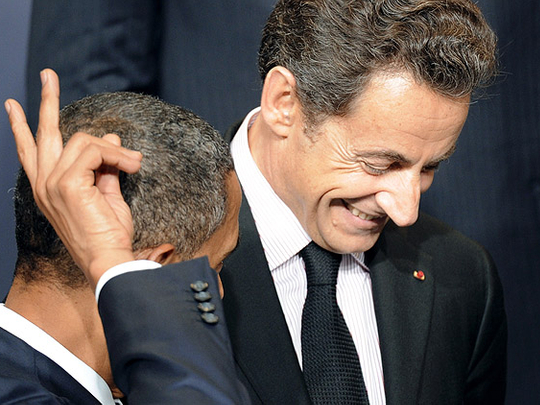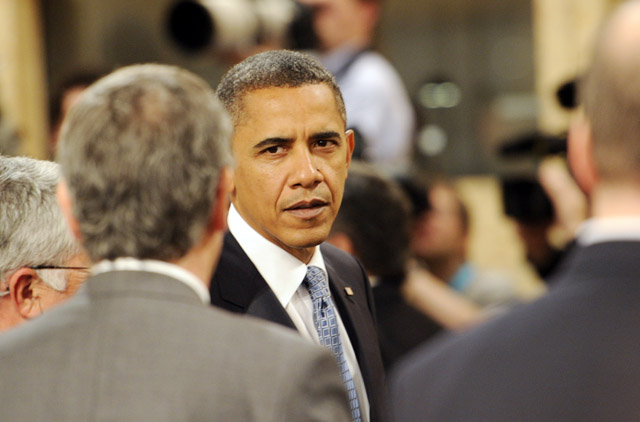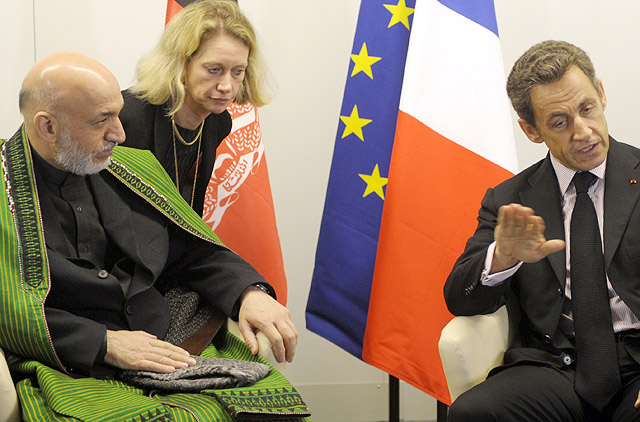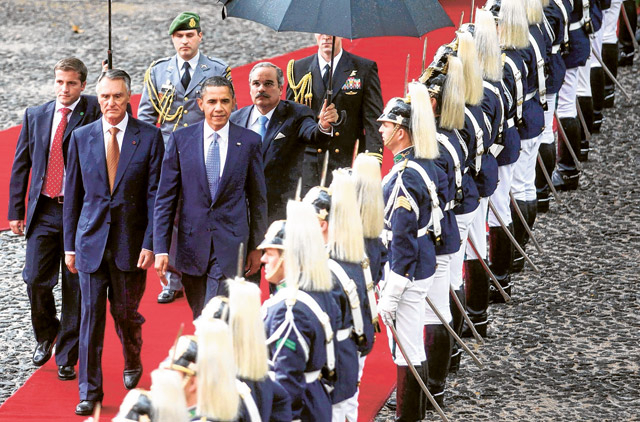
Lisbon: The North Atlantic Treaty Organisation (Nato) will launch the process for transition to Afghan-led security, a fresh start in relations with Russia and hammer out plans for a missile shield for Europe, alliance Secretary-General Anders Fogh Rasmussen said on Friday.
US President Barack Obama won Nato summit agreement to build a missile shield over Europe, an ambitious commitment to protect against Iranian attack while demonstrating the alliance's continuing relevance.
Obama and the allies are expected to announce plans on Saturday to begin handing off security responsibility in Afghanistan to local forces next year and to complete the transition by the end of 2014.
Opening the summit on Friday, Nato chief Rasmussen outlined the ambitious agenda of the alliance.
Calling the summit one of the most important in Nato's history, Rasmussen said the leaders "will launch a Nato that is more effective, more engaged and more efficient. "The new Strategic Concept will be the roadmap that shapes and guides Nato through the coming decade," he said.
The concept "will develop modern capabilities to defend against modern threats" and the Nato members "will reach out to partners around the globe.
"As part of that, we will make a fresh start in our relations with Russia, with the aim of building a strategic partnership," Rasmussen said.
For US President Barack Obama, who arrived for summit on Friday, the focus will be on a satisfactory solution to the situation in Afghanistan
Two key unanswered questions about the missile shield - will it work and can the Europeans afford it? - were put aside for the present in the interest of celebrating the agreement as a boost for Nato solidarity.
"It offers a role for all of our allies," Obama told reporters on Friday. "It responds to the threats of our times. It shows our determination to protect our citizens from the threat of ballistic missiles."
He did not mention Iran by name, acceding to the wishes of Nato member Turkey, which had threatened to block the deal if its neighbour was singled out.
Under the arrangement, a limited system of US anti-missile interceptors and radars already planned for Europe - to include interceptors in Romania and Poland and possibly a radar in Turkey - would be linked to expanded European-owned missile defenses.
That would create a broad system that protects every Nato country against medium-range missile attack.
Nato plans to invite Russia to join the missile shield effort, although Moscow would not be given joint control.
According to the US president, the US troop reductions will begin in July. Rasmussen, who wants to make Nato-Russia cooperation a hallmark of his tenure, sees Lisbon as a turning point.
"My strong sense is that Russia shares our view that the time has come to stop worrying about each other. The time has come to work together," he said ahead of the inaugural session.
The new relations with Russia should lead to wider cooperation over Afghanistan and participation in the missile defence systems to be deployed in Europe over the next ten years.
Obama has already welcomed a new role for Russia. "In Lisbon we can make it clear that Nato sees Russia as a partner, not an adversary," he said.
"[It] forms the foundation of greater collaboration - with a role for all allies, protection for all allies, and an opportunity for cooperation with Russia, which is also threatened by ballistic missiles," Obama said.
Nato- Russia cooperation will encompass Afghanistan, counter-narcotics and 21st century security challenges, from the spread of nuclear weapons to the spread of violent extremism, he wrote.
With input from agencies














